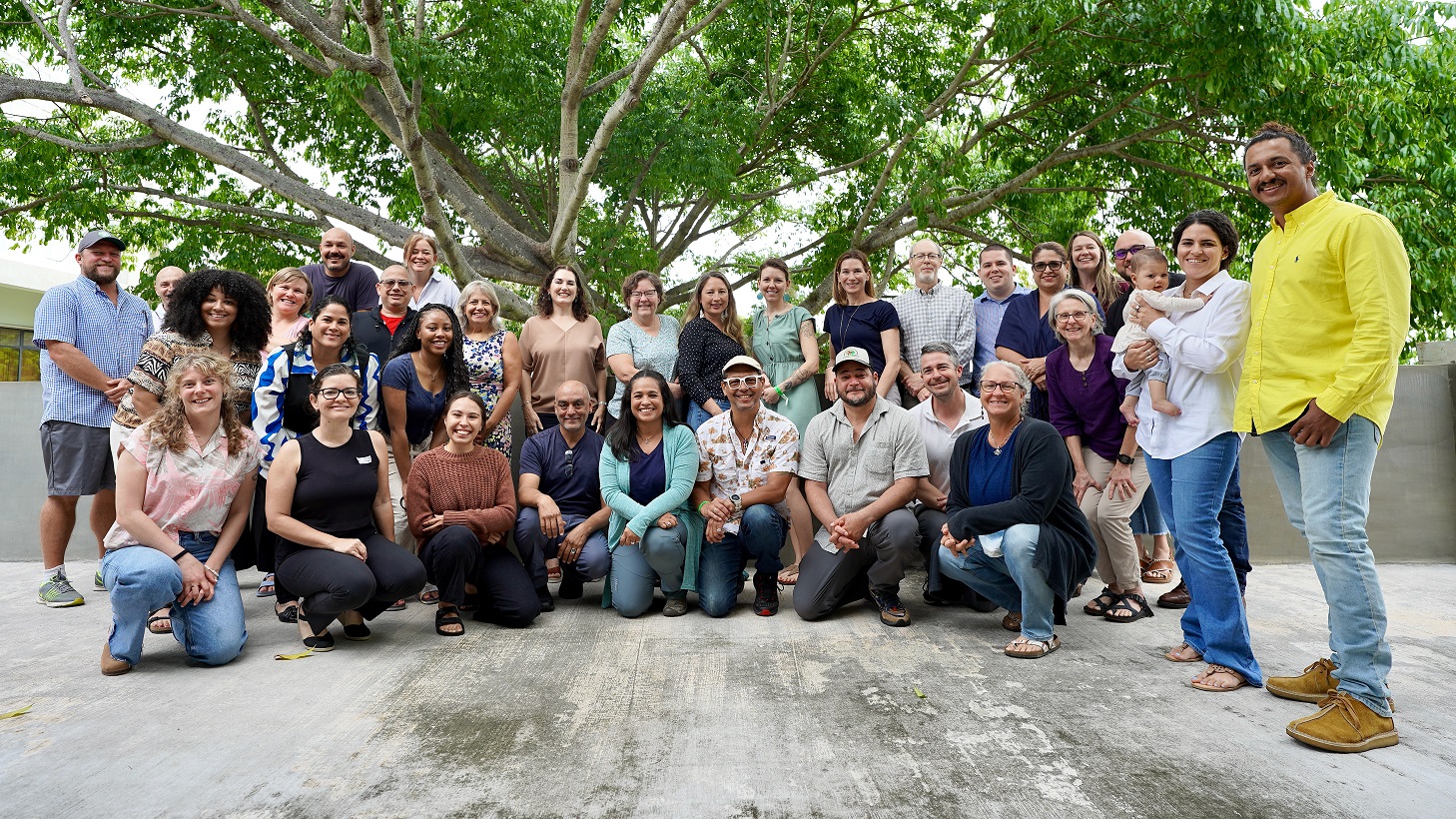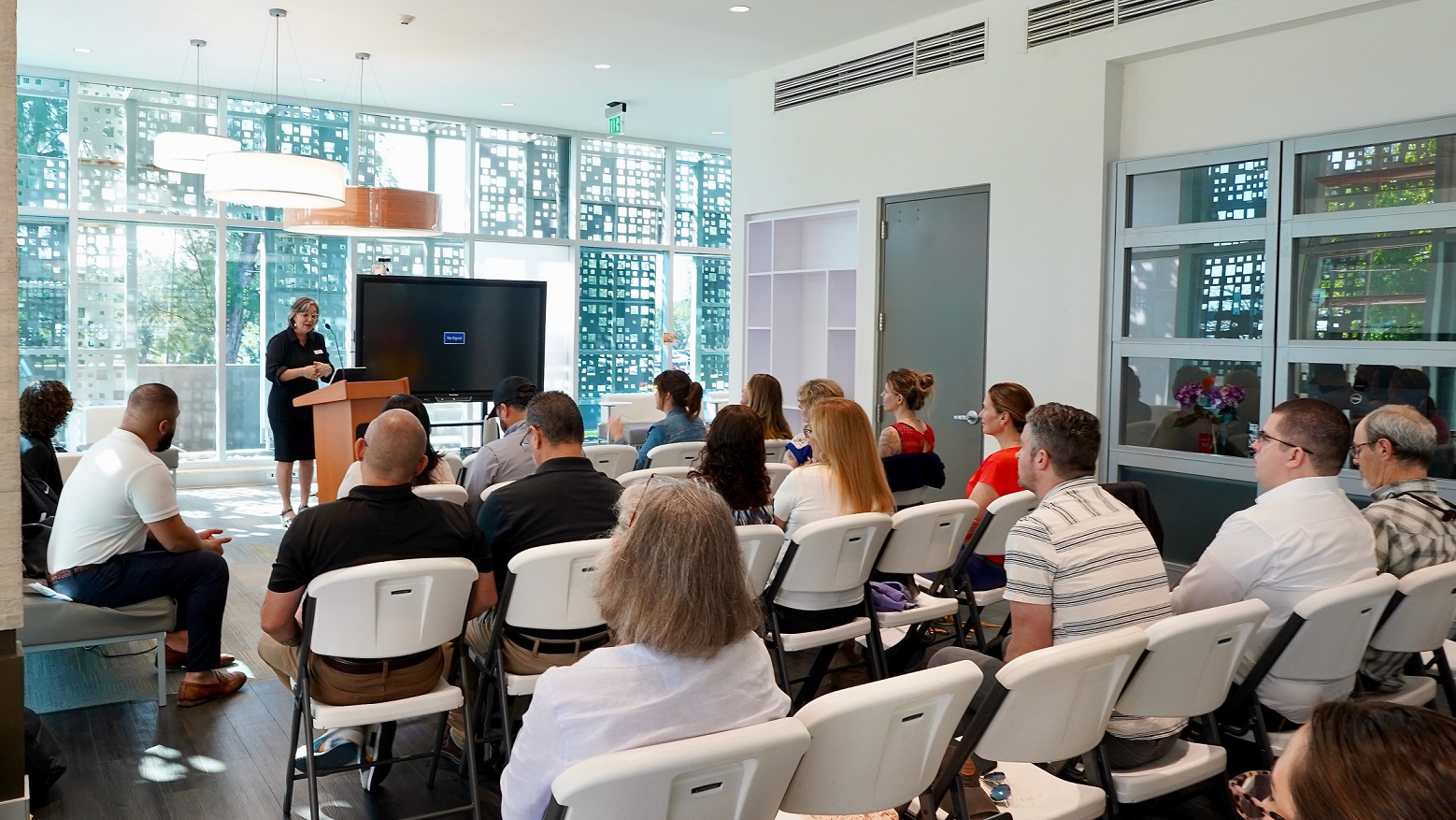Second annual Caribbean Conservation Community of Practice meeting

Over the past two years, SECAS staff have worked closely with the Caribbean Conservation Community of Practice (CCoP), an initiative composed of community leaders, researchers, universities, non-profits, as well as federal, state, and territorial governments. Through this community, partners are working together to build an applied science and resource management network, counteracting data inequities and the historic marginalization of island people in U.S. Caribbean communities. So far, roughly 90 people from 30 different agencies and organizations are participating in this network.
In March, the SECAS team headed to Arecibo, Puerto Rico to help coordinate the second annual in-person meeting of the CCoP, an important event to bring Caribbean partners together. In 2023, SECAS staff traveled to St. Croix for the kickoff meeting of this Community of Practice, which enabled us to work with partners and stakeholders and get critical feedback for expanding the Southeast Blueprint to the U.S. Virgin Islands and using a more consistent approach to update the Blueprint in Puerto Rico.
This year’s meeting was graciously hosted by the University of Puerto Rico in Arecibo and was well attended. Carmen Cantor, a Puerto Rico native and the Assistant Secretary of International and Insular Affairs of the U.S. Department of the Interior (DOI), gave opening remarks. The meeting also provided time to celebrate the tremendous amount of conservation wins the Community achieved in the past year. The CCoP partners worked hard to attract an influx in conservation funds through opportunities like the Bipartisan Infrastructure Law and Inflation Reduction Act, as well as a $2.7 million investment from the DOI to support climate workforce development in Puerto Rico. The Southeast Climate Adaptation Science Center (CASC) added two new university partners to their consortium—the University of the Virgin Islands and the University of Puerto Rico—and are already connecting researchers with grant opportunities. We’ve also seen partners receive major awards from grants like the America the Beautiful Challenge and Recovery Land Acquisition grants. Additionally, there are new tools and resources to help inform conservation actions in the Caribbean like the Southeast Conservation Blueprint and the geospatial SECAS Atlas, but also the U.S. Department of Agriculture Caribbean Climate Hub’s Farm Planning Tool, NOAA’s Economics: National Ocean Watch (ENOW), and the USGS Coastal Change Hazards Portal.
The meeting also gave CCoP partners an opportunity to discuss how to strengthen relationships and collaborations between conservationists, researchers, practitioners, and partners to benefit the unique ecosystems and communities of the U.S. Caribbean. We identified opportunities to enhance conservation outcomes across the U.S. Caribbean, focusing on both management and science needs. However, we also discussed ongoing challenges around data inequities, increasing threats due to climate change, and the lack of administrative capacity that can make managing federal funding difficult.

SECAS staff are committed to working with partners and data providers to begin to address some of these challenges. We have been working closely with the Southeast CASC to create a webpage and have several action items on our to-do list coming out of this meeting. Some action items include developing a single location on the webpage that links to all relevant spatial tools, creating a shared calendar for partners to share relevant meetings, and establishing a peer-peer program for future meetings that would provide translation support among this bilingual partnership. We’re already excited to help plan next year’s annual meeting that will be hosted on St. Thomas in the U.S. Virgin Islands. If you’d like to get more involved with what’s going on in the Caribbean, attend next year’s in-person meeting, or are just curious to learn more, you can visit the Community of Practice webpage and sign up for our listserv.